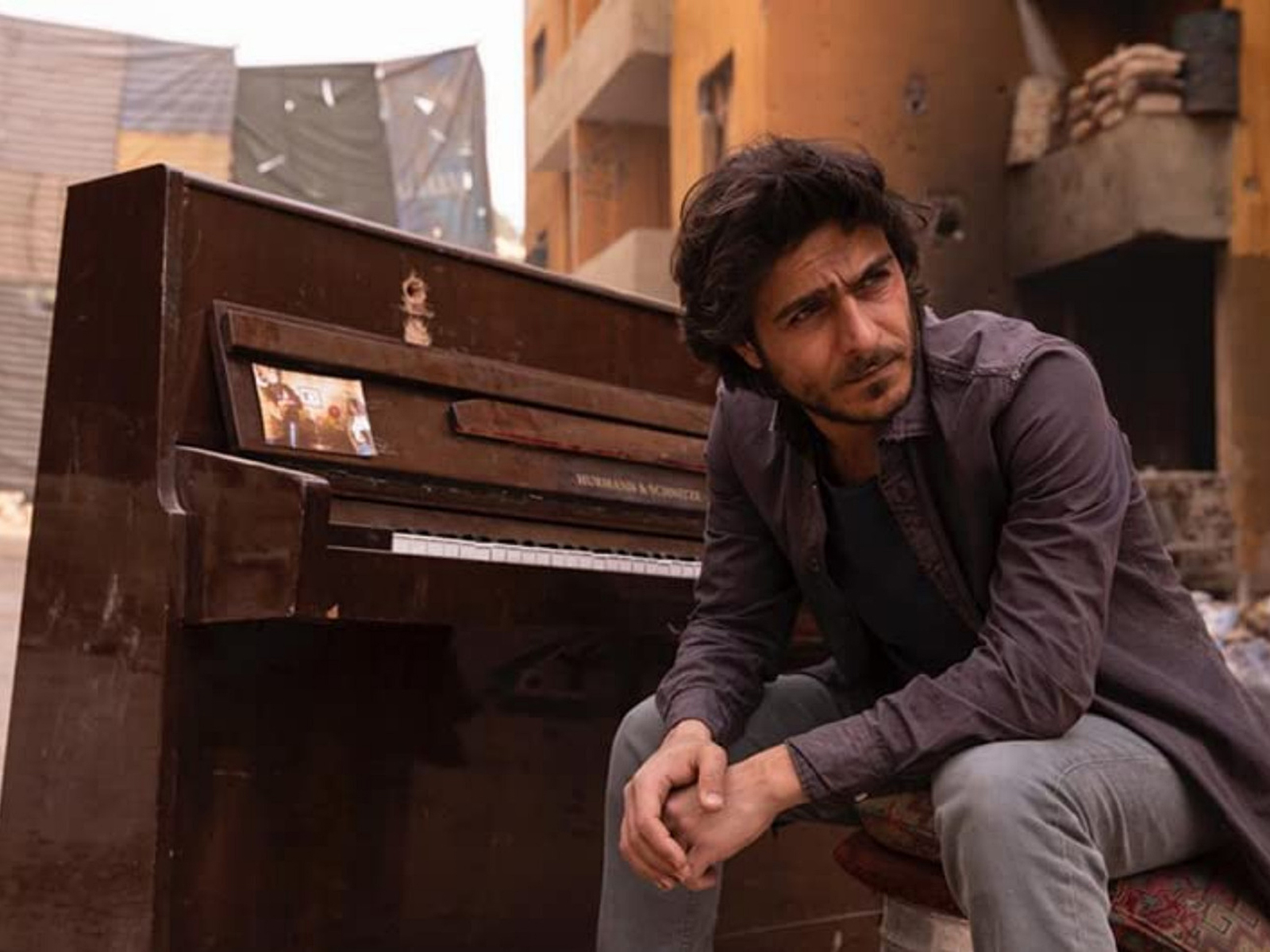
- Golden Globe Awards
Broken Keys (Lebanon): Interview with Director Jimmy Keyrouz
Jimmy Keyrouz was finishing his master’s in film directing at Columbia University in 2014 when he heard in the news that ISIS had banned music in its Syrian territories. So, he decided to make his thesis film about the subject and thus was born his short film Nocturne in Black, which ended up sweeping numerous awards including Gold for Best Narrative at the Student Academy Awards, the Bafta Student Film Award for Live Action, and a student award at the Directors Guild of America. The success of the short, propelled Keyrouz to expand it to a feature, titled Broken Keys, which made it into the 72nd Cannes Film Festival selections last May. In spite of its cancellation due to Covid-19, the festival has put Keyrouz on the map and garnered him the industry’s attention.
Broken Keys tells the story of a musician, named Karim, trapped in a Syrian town under the control of ISIS, which has banned music, cigarettes and alcohol. Karim finds solace in entertaining his neighbors with his piano while planning an escape to Europe. But when an ISIS commander raids his place and destroys the piano, he embarks on a perilous mission to fix it.
Why did you choose to tell the story of a pianist and his piano in a war movie?
Music is a very important part of my life. I constantly listen to music and have been playing piano since I was 7. So, I was shocked when I heard that music had been banned by ISIS in the territories under their control. I asked, how could anyone ban something so innocent and beautiful like music. Then I heard that artists are continuing to play their music discreetly in different ways. So, I was inspired to tell their story.
Usually, the hero in a war movie risks his life to save his country or someone else, Karim risks his life and the lives of others in order to fix the broken piano. Why is the piano so important to him?
This is a person who reached a stage when he has nothing left to lose. But he has a little hope, so he clings to it. He has to do this because, in war, you become like a caged animal. You do nothing other than eat and drink. He’s an artist. He needs to think, to dream, to express himself in order to feel alive. So, his only hope, though very slim, is to get the piano working.
The antagonist, the ISIS commander, cares for his sick mother, who was Karim’s piano teacher and helps in fixing the piano that her son has smashed. How did the son of a musician become so hateful of music and so brutal towards musicians?
The characters are inspired by real-life ones. ISIS seduced many young men with money, arms, authority and women, but there were also others who really believed in their Jihadist ideology and were driven by their hatred for the West. So, when I wrote this antagonist character, I wanted him to be complex, not just a villain without any self-doubts and inner conflicts. After all, he’s not an alien, he has a mother, used to have a normal life, but made this choice and lost his humanity.
My understanding was that ISIS was a foreign force in Syria, but in the movie, they are Syrians oppressing their own friends, relatives and neighbors. Was that the case in reality?
Yes. I was shocked to learn this when I was doing my research. Some people joined ISIS and turned against their people. That’s what enhances the drama in the film. I wanted all the characters in the film, whether ISIS or the civilians, to be from the same neighborhood.
How did you manage to recreate the harrowing war scenes and the large-scale destruction in the film, given that you had a limited budget?
We shot 38 days in Lebanon, where we covered interiors and the neighborhood scenes, and 6 days in Mosul in Iraq, where we did the war scenes because it had just been liberated from ISIS and is still in ruins. We could smell the dead and see the shaved hair of ISIS fighters, who tried to melt among civilians. We couldn’t afford CGI, but we got the real thing. It was a dangerous endeavor but a fun adventure.

